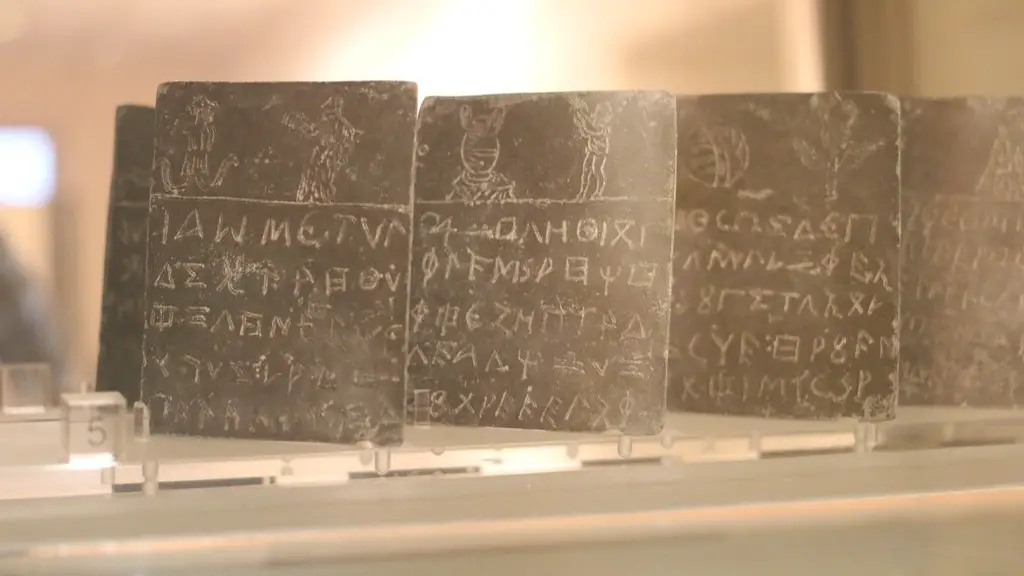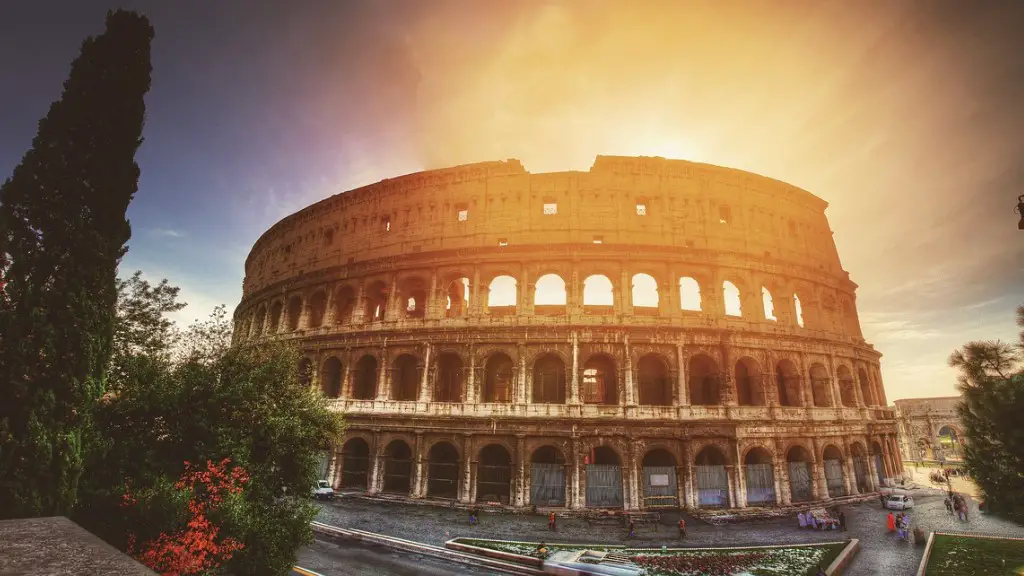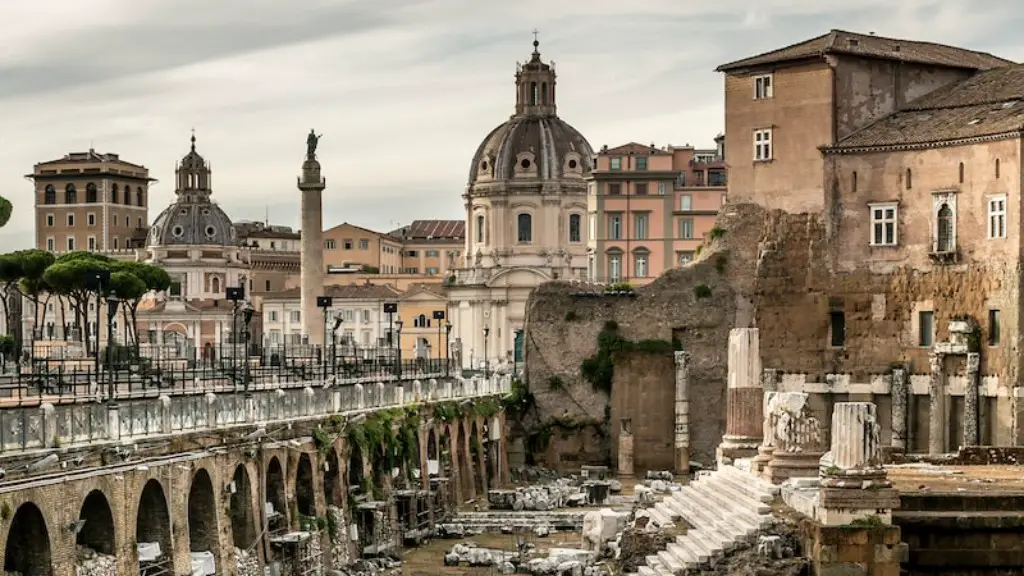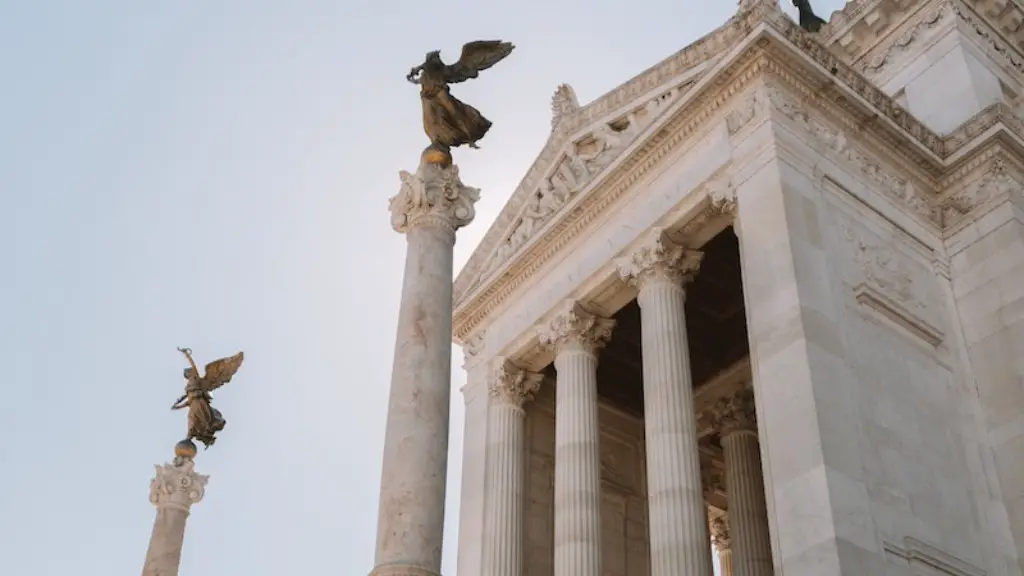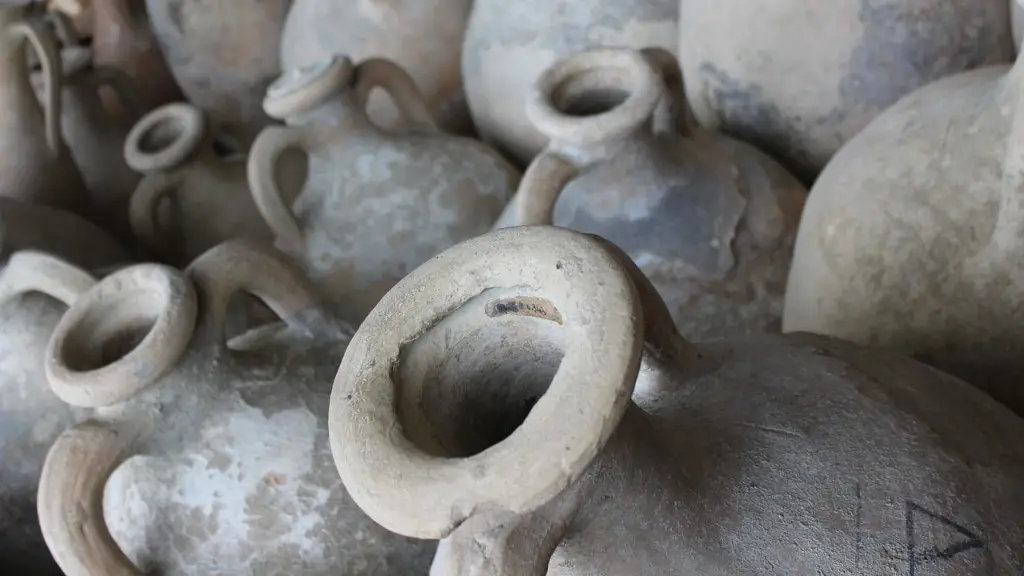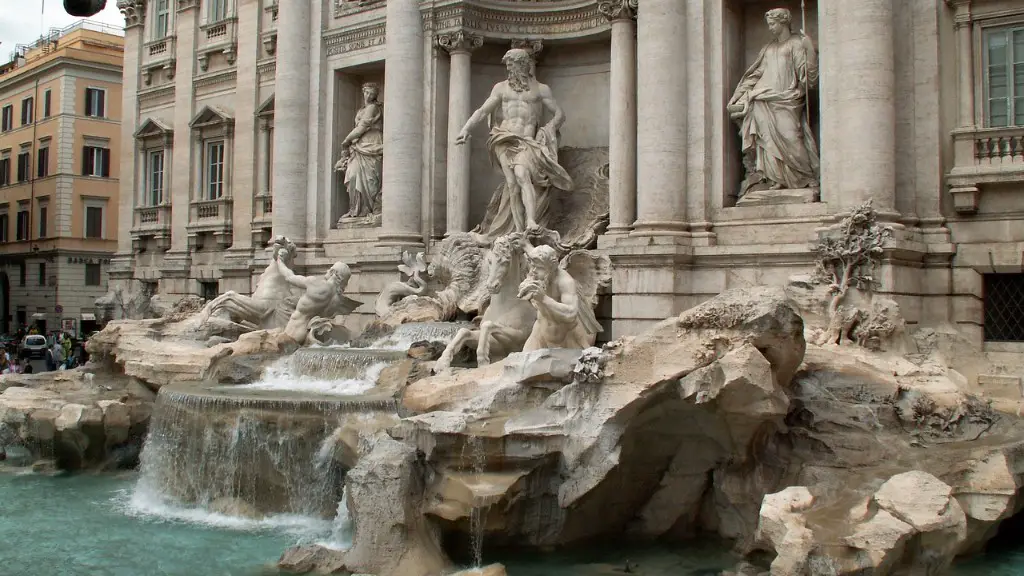Patrician Role in Ancient Rome
Patrician was the highest rank of society among the Roman citizens. It was fiercely guarded by the elite families who were chosen by the kings of Rome in ancient times. The lives of a Patrician in Ancient Rome was exciting and privileges but this not meant that their lives were free of demands and responsibilities.
Patricians possessed the sole right to certain political and religious offices. They had greater access to education and legal rights, but the main responsibility was to protect the lower classes from tyranny. Patricians were also responsible for ensuring the proper functioning of the state. They were considered to be a crucial part of the Roman Senate.
Patricians were also held responsible for supplying public services such as water, food, and shelter to Roman citizens. Another important duty of the Patricians was to keep public order and discourage public disturbances. They also had to ensure that the Roman citizens protected their personal properties. In addition to having privileges and rights, the Patricians were expected to fulfill certain duties and responsibilities.
Furthermore, Patricians had to adhere to the rules of law and justice. They also had to provide financial support to the poor and disadvantaged members of the society. They were expected to pay taxes to the state and to ensure that all citizens obeyed the laws. Patricians were also responsible for maintaining a high standard of ethics and morals within the society.
In addition to the political and religious responsibilities, Patricians also had to handle the economic matters of the city. Patricians had the sole right to own private property and to conduct trade and business. They had to take care of the finances of the Senate, and also to make sure that the citizens were not subjected to taxation beyond their ability.
Moreover, Patricians also had to protect the people in case of war, and they were expected to support them in any way they could. Patricians were also responsible for choosing the appropriate candidates to hold different political offices. Finally, they were expected to support the Senate in whatever way they could.
Patricians and Social Status
Patricians had higher social status than other social classes in Roman society. They were the only members of the Roman Senate who had the privilege to wear a specific dress code. This dress code included clothing of a certain color, fabric and cut. Patricians were also the only members of the society who could enter into certain places such as the temples and palaces where the government held its meetings.
Patricians were also the only members of the society who had access to certain large estates, which they used as their residence and farms. They were also allowed to own and breed horses and to use these horses in military campaigns. Patricians were also the only members of the society who could own the temples and shrines.
Patricians had access to certain benefits that other social classes did not have. For instance, they were exempt from certain taxes, such as the tax on meat and grain. Patricians were also allowed to keep the profits from their farms, and they were able to get a portion of the profits from certain trade and business that they conducted. Patricians had special privileges to hospitality, which was a special gesture to welcome any person of nobility, who visited the city.
Patricians were considered to be the most influential members of the society. They had the right to vote on matters of war, peace and public policy. Patricians had the right to offer their opinion on matters of public policy in the Senate, and they had the right to approve or reject the laws proposed by the Senate. Patricians were also responsible for selecting the members of the Senate and for appointing magistrates to govern the provinces.
Patricians and Political Power
Patricians had a strong political power in Ancient Rome. Patricians had the power to elect the members of the Senate, appoint political magistrates and pass or annul laws. They also had the exclusive right to hold political offices, and they had a considerable influence in the way the government was run. Patricians had the power to appoint military commanders, and they could levy taxes on the provinces if necessary.
Patricians had a considerable influence in the military campaigns that were conducted to expand the Roman Empire. They had the exclusive right to conduct trade with foreign countries, and they also had the exclusive right to own and breed horses for war. Patricians were also responsible for devising strategies to expand the Roman Empire and protect its borders from enemies.
In addition to the political power, Patricians had a considerable influence in the cultural life of Ancient Rome. Patricians had the right to own private estates, and they could employ artists, sculptors, painters, and other professionals to decorate those estates. Patricians were also responsible for organizing festivals, celebrations and spectacles in the city. They were also responsible for hosting and entertaining foreign guests in the city.
Patricians had the power to contribute to the advancement of society by patronizing the arts and sciences. They were responsible for establishing educational institutions, hospitals, and other public works. Patricians had the exclusive right to found cities and colonies, and they frequently sponsored expeditions to explore foreign lands. Patricians also had the exclusive right to commission monuments, and they often used their influence to improve the roads, aqueducts and other public works.
Patricians and Events
Patricians had the exclusive right to organize and preside over public meetings and ceremonies. They had the exclusive right to grant awards, honors and decorations. Patricians were also responsible for organizing military parades, to commemorate important events of the past such as military victories and conquests. Patricians were also responsible for hosting and presiding over games and spectacles, such as chariot races, boxing matches, and gladiator battles.
The Patrician class was also responsible for arranging funeral and commemorative ceremonies. They were expected to provide funds for the maintenance of temples, and they frequently commissioned monuments to commemorate victories. Patricians had the right to proclaim public holidays, and they often donated money to build temples and shrines.
Patricians had the right to judge the cases of their fellow citizens in the courts. They had the exclusive right to pass laws, approve or annul legal decisions, and to execute judgement. Patricians were also responsible for protecting the rights of the lower class citizens, and they often donated funds to support the poor and needy.
Patricians were also responsible for supervising the elections, and they also had the responsibility of ensuring a fair and honest balloting process. Patricians were expected to host banquets, dinner parties and other social events for their fellow citizens. Patricians were also responsible for providing entertainment for the people such as theatrical performances, and they often sponsored public festivals and spectacles.
Patricians and Business
Patricians had the exclusive right to own and manage businesses. Patricians were responsible for conducting trade and commerce with foreign countries, and they often initiated large-scale trading expeditions. The profits from these expeditions allowed them to amass great wealth, and they often used their fortunes to sponsor arts, sciences, and public works.
Patricians also had the exclusive right to raise funds for wars and to invest in large enterprises. Patricians often had extensive contacts with wealthy merchants, and they frequently used their influence to promote ambitious business projects, such as the construction of ships, road and bridges. Patricians had the exclusive right to own large estates, and they often used their farms to provide food, clothing, and other goods to their fellow citizens.
Patricians were also responsible for creating favorable conditions for the artisans and craftsmen. Patricians often funded and managed apprenticeships, which allowed artisans and craftsmen to gain experience and to hone their skills. Patricians also had the power to provide loans to traders, merchants and manufacturers. Patricians often provided funds for construction projects, and for other public works such as the building of temples, palaces, and monuments.
Patricians also had the exclusive right to issue coins, and they often funded the minting of coins with their own money. Patricians had the exclusive right to distribute the coins among the citizens of the state. Finally, Patricians had the exclusive right to create and manage the many public works and utilities of Ancient Rome.
Patricians and Religion
Patricians had an important role in the religious life of Ancient Rome. Patricians were responsible for establishing and maintaining temples, shrines and other places of worship. They had the right to appoint priests and other religious officials. They also had the right to fund religious events and to organize festivals and feasts. Patricians also had the right to offer sacrifices to the gods.
Patricians were also responsible for sponsoring and organizing important religious ceremonies and rituals. They had the right to participate in the rituals and ceremonies conducted in the temples. Patricians were also responsible for providing funds for the construction and adornment of temples and shrines. They were also responsible for donating money to poor and disadvantaged people so that they could perform religious ceremonies. Patricians were also responsible for selecting candidates for the various religious offices.
Patricians had exclusive rights to certain spiritual rituals. They had the exclusive right to issue declarations of divine inspiration and oracle of the gods. They also had the exclusive right to preside over and conduct the rituals related to the founding of a new city, or the annexation of a province to the Roman Empire. Patricians had the exclusive right to consecrate temples and to participate in public devotions and religious processions.
Moreover, Patricians had the right to offer prayers and petitions to the gods. Patricians were also responsible for administering laws related to religious rituals, and they had the power to enact legislation in order to enforce religious laws. Patricians were also responsible for the protection and maintenance of temples and shrines.
Conclusion
Life as a Patrician was a privileged one in Ancient Rome, but it came with its own set of rules, responsibilities and privileges and was based on a strict social hierarchy.
Patricians had exclusive rights to political, religious and economic matters, as well as to certain military, social and cultural events. They had considerable influence in the way the government and the society were run. Patricians had exclusive rights to own businesses and to raise funds for large enterprises.
Finally, Patricians had exclusive rights to certain religious rituals and ceremonies, and they were responsible for protecting and maintaining temples and shrines. Their power and influence in Ancient Rome was considerable, and it was necessary for the proper functioning of the Roman state.
